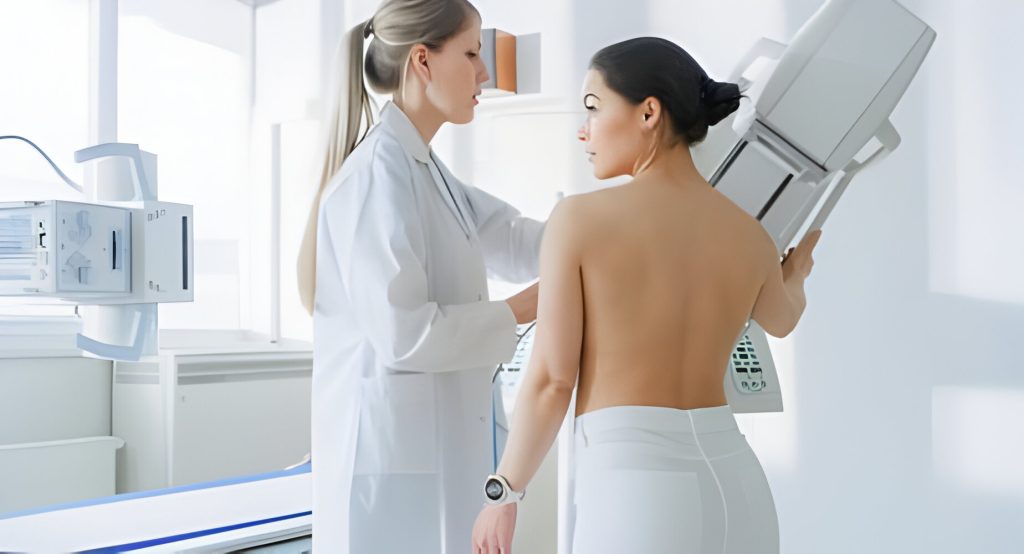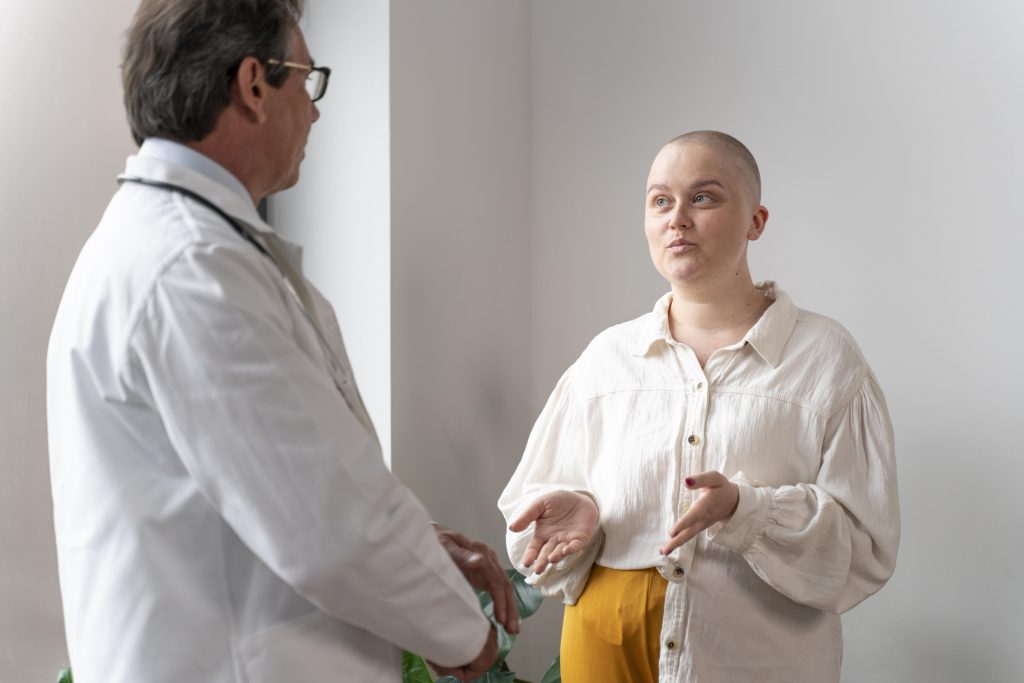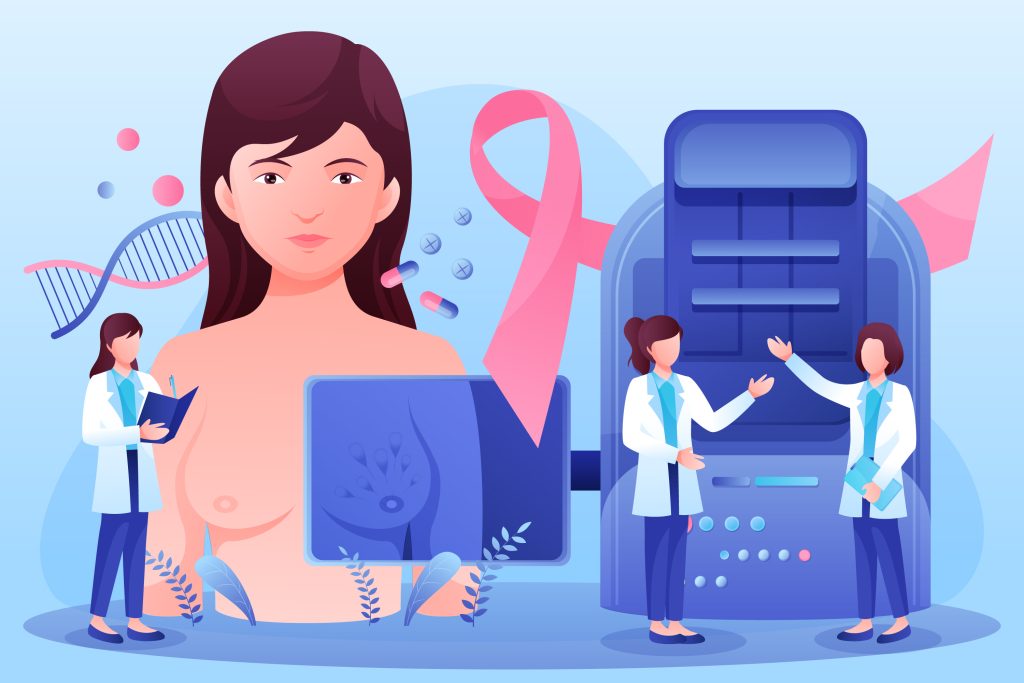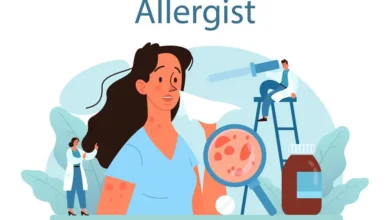“Proactive Efforts: Advised Cancer Screenings for Young Women.”
Here are the important cancer screenings to get and the tests to avoid:

Introduction: Cancer screenings for young women
Imagine a world where even royalty isn’t immune to the silent threat of cancer lurking within. The recent revelation of Catherine’s Princess of Wales diagnosis has sent shockwaves through society, highlighting the critical importance of regular screenings and early detection. Despite her seemingly perfect facade, this news serves as a stark reminder that no one is exempt from the clutches of this relentless disease.
The recent news of a member of the royal family being diagnosed with a health issue has served as a stark reminder that our physical well-being is often more complex than it may appear on the surface. Despite seeming healthy and full of vitality, there may be underlying risks and potential dangers that we are not aware of. This revelation has prompted a sense of urgency among many individuals to take proactive measures to safeguard their health and prioritize preventive care to avoid any unforeseen health complications down the line.
Understanding the emotional impact of a cancer diagnosis
Fertility Concerns:
Addressing reproductive health and family planning options
Career Disruptions:
Navigating work challenges during treatment and recovery
Social Isolation:
Dealing with loneliness and maintaining social connections
Holistic Support Services:
Importance of emotional well-being in cancer care
Improved Quality of Life:
Enhancing overall well-being through holistic support services
Conclusion:
Emphasizing the necessity of comprehensive support services
Why young women must take charge of their cancer screenings
There has been a noticeable rise in gastrointestinal problems lately, and one of the reasons behind this trend could be the delay or avoidance of cancer screening tests. These tests, such as colonoscopies, can help detect any abnormal growths or cancers in the early stages, which can allow for prompt intervention and effective treatment. However, many people are hesitant to undergo these procedures due to various reasons, such as fear, lack of knowledge, or false beliefs about the discomfort involved.
It is essential for young women to take proactive measures when it comes to cancer screenings. Despite many considering themselves to be at low risk for the disease at a young age, early detection through recommended screenings can be critical in preventing advanced stages of cancer. Regular screenings, such as pap smears and mammograms, are recommended for different age groups, providing an opportunity to catch any abnormalities before they become severe. By adhering to these screening guidelines, young women can prioritize their health and well-being while minimizing the potential impact of cancer.
The power of prevention: Why early intervention matters most
By being proactive about their health, young women can take control of their well-being and empower themselves with knowledge about potential risks. It’s essential to debunk the myth that cancer only impacts older individuals, as there are instances where young women have been diagnosed with various types of cancer. Encouraging timely cancer screenings can pave the way for early intervention and improved treatment outcomes, ultimately contributing to a healthier future for all women.

In light of these findings, it is crucial for individuals who engage in heavy alcohol consumption or tobacco use to pay close attention to their gastrointestinal health. Regular cancer screenings become even more imperative for this demographic, as they are at an increased risk of developing serious conditions like colon cancer. By being proactive about monitoring their digestive health and making necessary lifestyle changes, individuals can help reduce their risk of experiencing debilitating gastrointestinal issues linked to alcohol and tobacco consumption.
It is of utmost importance for young women to be proactive about their health to prevent and detect cancer at an early stage. Recommended cancer screenings, such as breast exams and Pap smears, provide young women with the knowledge and power to take control of their well-being. By keeping up with these advised screenings, young women can detect any potential health issues early on, which can lead to better treatment outcomes and improve their chances of a full recovery.
Get the scoop: young woman’s guide to lifesaving cancer screenings
It is crucial to increase awareness among young women about the significance of taking proactive measures in cancer screenings. With the continuous advancements in medical technology and research, there are now more precise and readily available screening options accessible. It is imperative to emphasize the importance of prioritizing their health by scheduling regular check-ups and screenings, as it can significantly contribute to saving lives and enhancing their overall quality of life.
Cancer screenings then become not just a proactive measure but an essential tool for detecting potential risks exacerbated by environmental exposures. By understanding how pollutants and chemicals can tip the scales within our gut microbiome, individuals gain valuable insight into their susceptibility to developing gastrointestinal diseases. Therefore, being mindful of environmental factors alongside lifestyle choices becomes pivotal in preserving gut health and prioritizing preventive care through regular cancer screenings.
The importance of cancer screenings cannot be overstated in the realm of preventative healthcare. Early detection is often the key to successful treatment outcomes, particularly in cases of gastrointestinal cancers that can be notoriously aggressive in nature. By undergoing recommended screening tests at the appropriate intervals based on individual risk factors and age, individuals can significantly enhance their chances of detecting abnormalities or malignancies at early, more treatable stages.
Empower yourself: How regular screenings can save your life!
Regular cancer screenings are an essential aspect of proactive healthcare for young women that is often overlooked. It is a common misconception that cancer screenings are only significant for older individuals. However, early detection through regular screenings can substantially improve treatment outcomes for cancers like breast and cervical cancer. Adhering to recommended screening schedules can help young women take proactive measures to safeguard their health and identify any potential issues at an early stage. By doing so, they can stay ahead of any potential health risks and ensure the best possible outcomes.
In addition to routine cancer screenings, it’s essential for young women to be aware of their family medical history and any specific risk factors they may have for certain types of cancer. This information can help healthcare providers tailor cancer screening recommendations to each individual’s unique needs, ensuring a more personalized approach to preventative care. By being proactive and taking charge of their health at a younger age, women can not only reduce their risk of developing certain types of cancer but also set a positive example for future generations when it comes to prioritizing wellness and prevention.

Essential for some people
HPV test
The HPV test is a medical examination that is carried out to identify the presence of the human papillomavirus (HPV) in a person’s body. HPV is a sexually transmitted infection that is quite prevalent and can lead to numerous health complications, including genital warts and certain forms of cancer. The examination is performed by collecting a sample of cells from either the cervix (for females) or the genitals (for males). It is typically recommended for individuals who are at high risk of getting an HPV infection or who are displaying symptoms of the virus.
Mammogram
A mammogram is a medical imaging test that uses low-dose X-rays to examine the breast tissue of women for the early detection and diagnosis of breast cancer. This screening tool is crucial in identifying any abnormalities in the breast tissue, such as lumps or tumors, at an early stage, when the chances of successful treatment are the highest. The test is recommended for women aged 40 and above, and for those with a family history of breast cancer, it is recommended to start screening earlier. Mammograms are crucial in detecting breast cancer early, when it is more easily treated, and can ultimately help save lives.
According to the Centers for Disease Control and Prevention, approximately half of women aged 40 and above have dense breasts, a condition that can make it more challenging to detect breast cancer tumors on a mammogram. In such cases, radiologists typically make a note in the report, recommending additional screening, such as an annual ultrasound. It is advised that women with a first-degree relative (mother, sister, or daughter) who has a history of breast cancer commence mammograms 10 to 15 years earlier than the age at which the family member was diagnosed with the disease, as suggested by Goldfarb. This proactive approach to screening can significantly improve the chances of early detection and successful treatment of breast cancer.
Colonoscopy
A colonoscopy is a medical procedure that allows a healthcare provider to examine the inner lining of the large intestine (colon) using a flexible tube with a camera at the end, called a colonoscope. This procedure is typically performed to screen for colon cancer as well as to investigate symptoms such as rectal bleeding, abdominal pain, or changes in bowel habits. During a colonoscopy, the colonoscope is inserted through the rectum and advanced through the entire length of the colon, allowing the provider to visualize any abnormalities such as polyps, ulcers, or inflammation. If any suspicious areas are found, biopsies can be taken for further evaluation.
Colonoscopies are considered a gold standard for colon cancer screening because they can detect and remove precancerous polyps before they develop into cancer. It is recommended that individuals over the age of 50 undergo regular colonoscopies as part of their preventive healthcare routine. While the procedure itself is relatively quick and painless, it does require some preparation beforehand, such as following a clear liquid diet and taking laxatives to cleanse the colon. Overall, colonoscopies are a valuable tool in the early detection and prevention of colorectal cancer and can ultimately save lives.
Skin cancer screening
Skin cancer screening is a crucial aspect of preventive healthcare, especially for individuals with a history of excessive sun exposure or a family history of skin cancer. The screening process typically involves a thorough examination of the skin by a healthcare provider, looking for any abnormal moles or lesions that could indicate the presence of skin cancer. In addition to a visual inspection, some screenings may also include the use of dermoscopy, a tool that allows for a more detailed examination of suspicious areas.
Early detection of skin cancer is key to successful treatment, as the disease is highly curable when caught in its early stages. It is recommended that individuals undergo regular skin cancer screenings, particularly those at higher risk, such as fair-skinned individuals or those with a personal or family history of skin cancer. By staying vigilant and proactive about skin cancer screening, individuals can take an important step in protecting their skin health and overall well-being.
It is useful for some people
Breast MRI
Breast MRI, or magnetic resonance imaging, is a noninvasive medical imaging technique that uses a powerful magnetic field and radio waves to create detailed images of the breast tissue. It is often used as a supplemental screening tool for women who are at high risk for breast cancer, as well as for evaluating the extent of cancer in the breast and for monitoring response to treatment. Breast MRI can provide valuable information about the size, shape, and location of tumors, as well as the presence of any additional tumors that may not be visible on mammograms or ultrasound.
It is also useful for assessing the integrity of breast implants and for detecting abnormalities in women with dense breast tissue. During a breast MRI, the patient lies on a table that slides into a tunnel-like machine, where the images are captured. The procedure is painless, but some patients may feel claustrophobic during the scan. It is important to remove all metal objects, such as jewelry and clothing with metal fasteners, before undergoing a breast MRI, as they can interfere with the magnetic field and affect the quality of the images. Overall, breast MRI is a valuable tool for diagnosing and monitoring breast cancer, and it plays an important role in the comprehensive care of women with breast health concerns.
Lung cancer screening
Lung cancer screening is a crucial tool in the early detection and treatment of this deadly disease. Screening tests can help identify cancer at its earliest stages, when it is most treatable. The most common screening test for lung cancer is a low-dose CT scan, which uses X-rays to create detailed images of the lungs. This test is recommended for individuals who are at high risk of developing lung cancer, such as current or former smokers.
The US Preventive Services Task Force recommends annual screening for lung cancer with low-dose CT scans for adults aged 50 to 80 who have a 20-pack-year smoking history and currently smoke or have quit within the past 15 years. It is important for individuals to discuss their risk factors with their healthcare provider to determine if lung cancer screening is appropriate for them. Early detection through screening can significantly increase the chances of successful treatment and improve outcomes for individuals diagnosed with lung cancer.
Skip it
At-home genetic tests
Although direct-to-consumer genetic tests offer an accessible way to explore one’s genetic predispositions, they should not replace routine cancer screenings and proactive efforts toward managing health. Dr. Domchek underscores the importance of utilizing these tests as a supplementary tool rather than a definitive diagnostic method for assessing breast cancer risk. By combining genetic testing with regular screenings and adopting healthy lifestyle practices, individuals can take proactive steps toward the early detection and prevention of various health conditions.
Moreover, the increasing popularity of direct-to-consumer genetic tests raises concerns about privacy and data security. As consumers entrust sensitive information about their genetic makeup to these companies, questions arise regarding the protection of this data from misuse or breaches. It is crucial for individuals to be aware of the potential risks associated with sharing their genetic information online and to choose reputable companies that prioritize data security and ethical practices in handling confidential information.
Full-body MRI scans
It is important to be cautious when considering full-body MRI scans as a preventive measure for cancer, despite the enticing claims made by some MRI clinics. The American College of Radiology does not recommend these scans, as there is insufficient evidence to support their efficacy in saving lives or detecting cancer more effectively than standard screenings.
Instead, focusing on maintaining a healthy lifestyle can significantly reduce the risk of developing cancer. By prioritizing factors such as maintaining a healthy weight, engaging in regular physical activity, and following a nutritious diet, individuals can potentially prevent over 40 percent of all cancer cases, according to the World Cancer Research Fund International. Pairing these lifestyle choices with regular screenings can greatly enhance one’s chances of leading a healthy life for years to come.
Conclusion
In conclusion, taking proactive measures, such as following recommended cancer screenings, is essential for young women to detect and treat cancer early. Regular screenings for breast, cervical, ovarian, and skin cancer can help identify any potential issues at a stage when treatment is most effective. It is crucial for young women to be proactive about their health and discuss their risk factors with healthcare providers to determine the best screening schedule for them. By prioritizing their well-being through proactive measures, young women can empower themselves and lower their risk of developing cancer. Let’s take charge of our health and make screening a priority for a healthier future.



